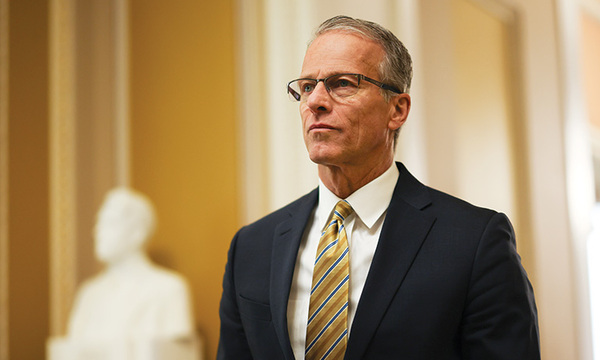What will the Christian Church look like in the future? Will it become more visibly unified or more fragmented than ever? Where and in what form will the future church thrive? These were some of the questions on the table on Sept. 9, as ČŐČŐĹöşÝşÝÔęžĂžĂÔę2023âs Torrey Honors College, in partnership with First Things and the Theopolis Institute, hosted a discussion on âThe Future of the Church.â
A sequel of sorts to a popular 2014 Torrey event, âThe Future of Protestantism,â the #churchfuture event (as it was known on Twitter) featured a capacity crowd in Calvary Chapel (as well as thousands of online viewers) watching theologians of varying backgrounds discuss the contours of ecclesiology and prospects for church unity.
This time around the panel represented a âbigger tentâ of Christian traditions: Simon Chan of Singapore, one of the worldâs foremost Pentecostal theologians; Ephraim Radner, an Anglican theologian from Toronto; Thomas Rausch, a Catholic theologian from Loyola Marymount University; and ČŐČŐĹöşÝşÝÔęžĂžĂÔę2023 professor Fred Sanders representing âlow churchâ evangelicalism. ČŐČŐĹöşÝşÝÔęžĂžĂÔę2023 professor Matt Jenson served as moderator.
Each speaker gave prepared remarks for 10 minutes apiece, followed by a roundtable conversation with questions posed from Jenson and members of the audience. The event concluded with brief remarks from theologian Peter Leithart, whose 2013 essay âThe End of Protestantismâ sparked the dialogue explored by these two ČŐČŐĹöşÝşÝÔęžĂžĂÔę2023 events.
Chan spoke first and began his talk by pointing out that from an eschatological perspective, the future of the church is certain.
âChrist will one day have his bride without spot and wrinkle,â he said. âWithout faith in this church that Jesus built, I donât think there is much point discussing the future of the church. Our hope in its future is the promise of Christ.â
Radner echoed this sentiment, arguing that âthere are today churches who will become the Church, but only as the Church becomes the bride presented to Christ.â
As for the current vitality of the church, panelists seemed to agree that it was a mixed bag.
Chan noted that while the Western mainline Protestantism tradition is âprobably beyond repair,â he had âguarded optimismâ about the churchâs future in the Catholic, Orthodox, evangelical and Pentecostal traditions, though each has both strengths and weaknesses.
Rausch had similar observations about the changing profile of global Christianity.
âIf Christianity is diminishing in the West, it is flourishing in Asia, Africa and Latin America, as Christianityâs center of gravity shifts to the Global South,â said Rausch, who pointed out that much of this growth has come in evangelical, Pentecostal and charismatic churches.
Both Chan and Rausch noted that the strengths of Global South Christianity also present challenges to the ecumenical movement. Where the former prioritizes experience, the supernatural and deep spiritual affinity with âprimal religiosity,â the latter is more cerebral in its focus on the nuances of theology, creeds and confessions.
Still, Rausch was hopeful that the priority of mission would lead to common ground. If anything should move separated churches closer together, he suggested, it should be the urgency of the growing number of religiously unaffiliated, especially among young people.
Sanders picked up the theme of mission in his remarks, focusing on the importance of evangelization over ecclesiology. The key question for evangelicalism, argued Sanders, is not âWhat church do you belong to?â but rather âDo you know Jesus?â Evangelicalism is not a church with an ecclesiology but a movement with a mission. Evangelicalism began, after all, with conservative defectors from liberalizing denominations who sought to âband together and stick to the old faith.â The interdenominational cooperation of evangelicalism, suggested Sanders, is a sort of model of ecumenism.
In his concluding remarks on the eveningâs discussion, Leithart agreed with Sandersâ point that âDo you know Jesus?â is the central question. But he challenged the audience to ask: âIs the Jesus you know the Jesus who prayed that all his children and disciples would be one? If you know Jesus, youâre also seeking to serve and obey him, and that means pursuing a unified future for the church.â
 ČŐČŐĹöşÝşÝÔęžĂžĂÔę2023
ČŐČŐĹöşÝşÝÔęžĂžĂÔę2023



